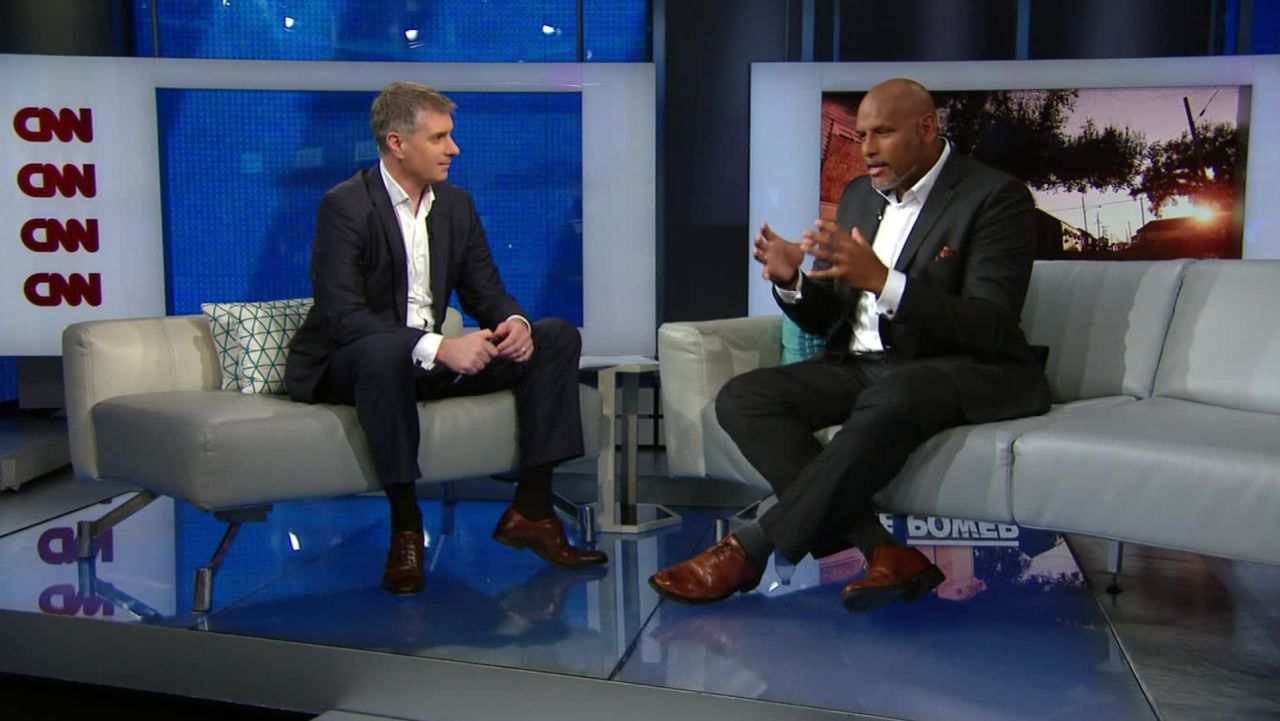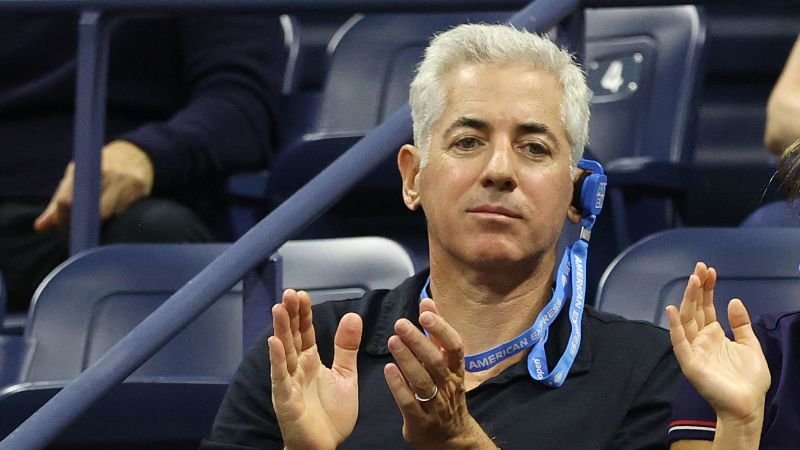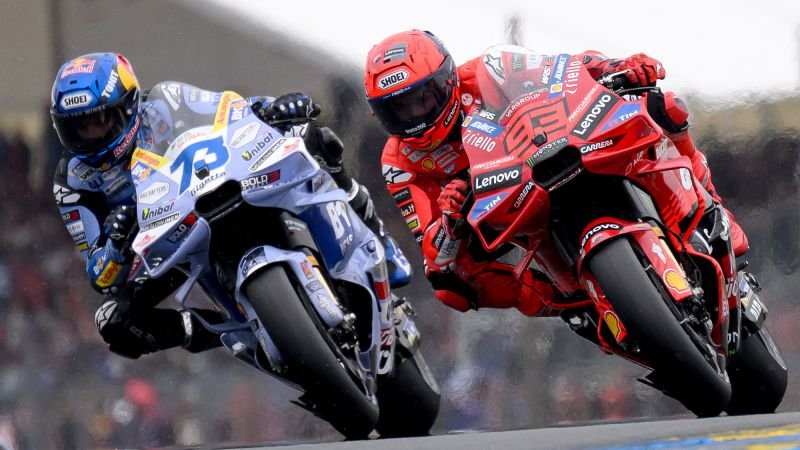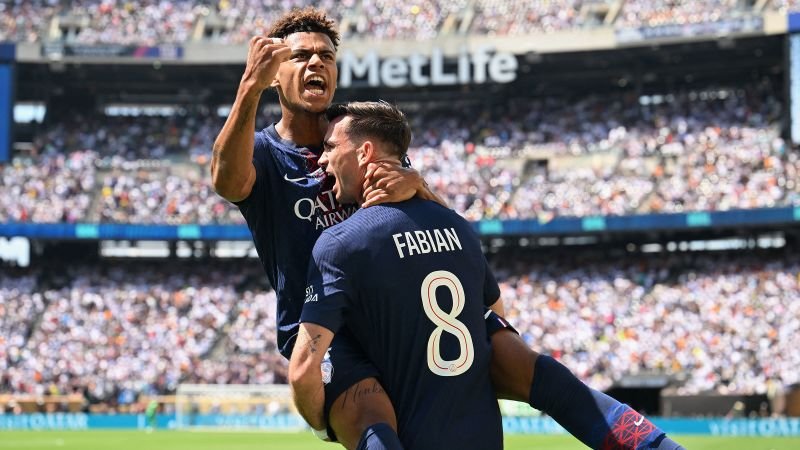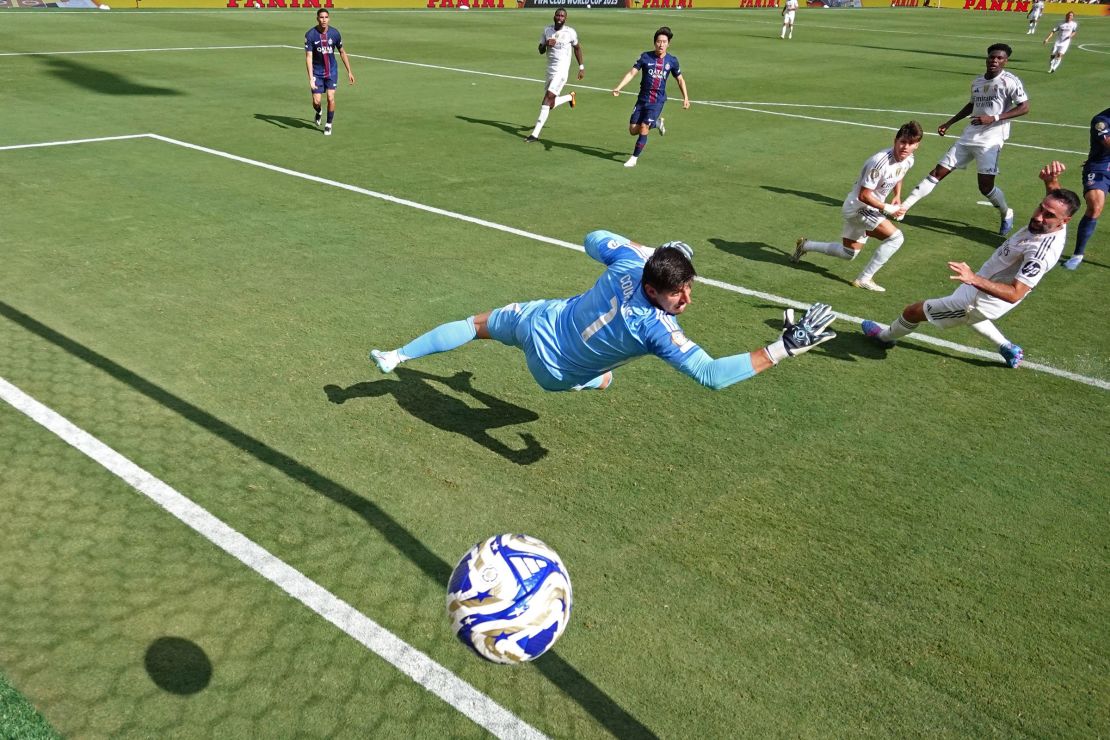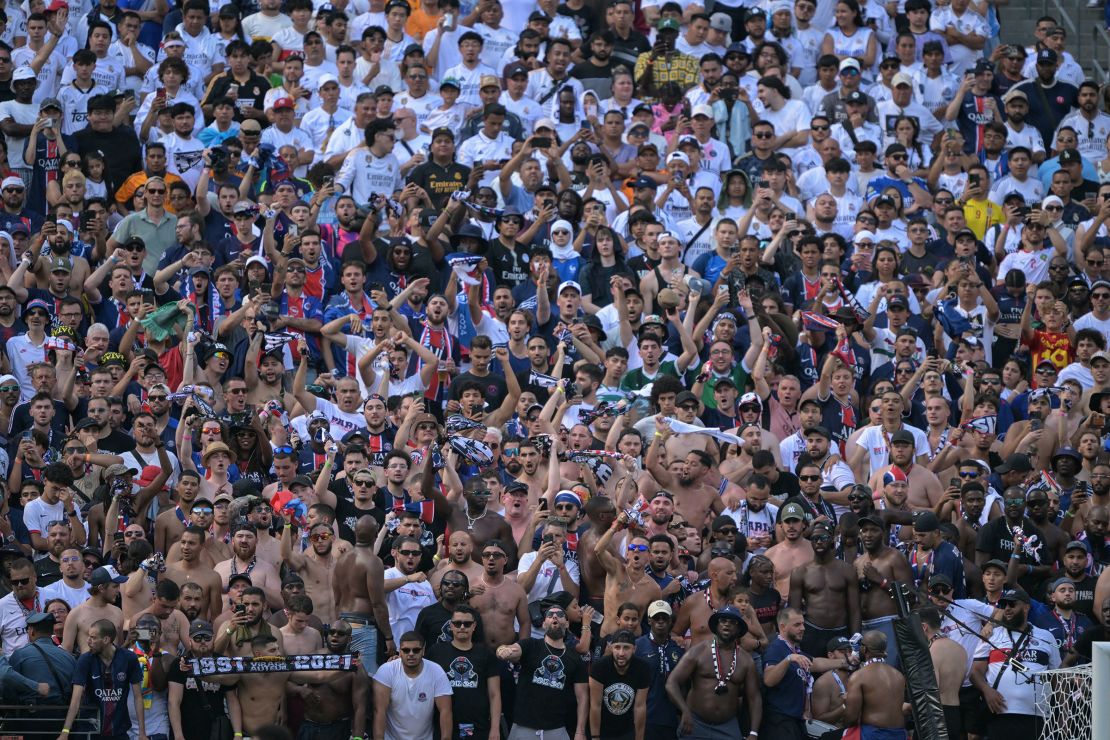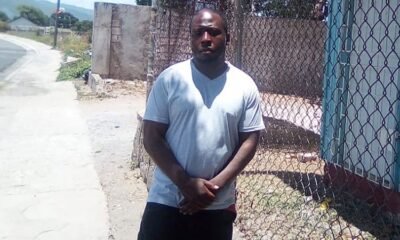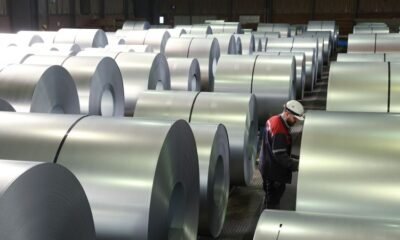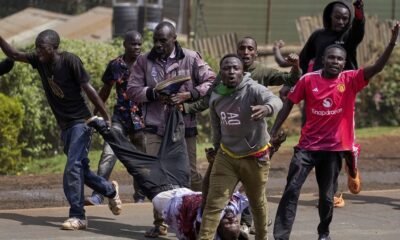CNN
—
World class sporting siblings may not be unheard of, but with the notable exception of Serena and Venus Williams in tennis, they are rarely in direct competition for the same big prize.
Rarer still is a story with as many twists and turns as that of Marc and Álex Márquez, two brothers from the tiny town of Cervera in Spain’s northeastern region of Catalonia. Currently lying first and second in the MotoGP standings, they are vying for a world title at speeds of over 220 mph (354 kph) as the Formula One of motorcycle racing approaches the halfway point of the season.
Undoubtedly among the greatest ever motorcycle racers, Marc Márquez is seeking his first premier class crown since 2019, after overcoming a series of horrendous injuries, a debilitating eye condition – diplopia – that left him seeing double, and parting company with Repsol Honda, the team for which he had won six premier class titles. Now riding a factory Ducati, MotoGP’s glamorous equivalent of F1’s Ferrari, the 32-year-old is seeking his seventh crown. No one, however, expected his younger brother, Álex, to be snapping at his heels.
The junior Márquez cuts a contrasting figure to his steely, laser-focused elder sibling. A full four inches taller, but three years younger than Marc, he is a picture of affability, exuding warmth, patience and good humor throughout the paddock. When Álex arrives a few minutes late to speak to CNN Sports, his press officer laughs, lamenting the fact that they would have made it on time if the rider “didn’t stop to say hi to literally everyone.”
Álex knows what it’s like to be a world champion, with both Moto3 and Moto2 titles to his name, but until this season had rarely troubled the podium in MotoGP. Riding for the satellite Gresini Ducati team, on the 2024 version of Marc’s factory bike, something has suddenly clicked; with six podiums and a win from the first nine races, he is a genuine title contender.
‘When you’re enjoying it and you’re fast, it’s easy’
“This bike was easy from the first moment, it’s good for my riding style, so I didn’t need to change a lot,” Álex explains. “Me and Marc were coming from a 2023 bike that was really difficult to ride … last year’s bike was a nightmare on corner entry.
“When you’re on a bike and you’re thinking a lot, you’re slow; when you’re on a bike and you don’t need to change your riding style a lot and you can just build speed, you’re really fast, and this is what the 2024 bike has given to me, it’s better in all the areas, so it’s much easier for me. When you’re enjoying it and you’re fast, it’s easy.”
Álex knows no one expected his ascent this term and says he can feel the shifting dynamic of competing at the very top. “It’s more pressure, but in a super nice situation,” he tells CNN Sports. “Because, at the beginning of this season, nobody was waiting for us and suddenly we are there fighting with Marc. You know everybody was expecting the fight between Marc and (two-time MotoGP world champion) Pecco (Bagnaia), not me, but we are there.”
Marc was also riding for the Gresini team last season, before the switch up to the pressure cooker of the factory team this year. Álex believes the additional expectation Marc has taken on might weigh the elder sibling down.
“We have nothing to lose, they have many things to lose because, in an official team, do you need to win? Yes or yes. When you’re in an independent team, you have last year’s bike, the goal always is to make some podiums, try to win some races, but fighting for the championship is difficult because we don’t have the official bike.”
While Álex can draw on his own experience of winning world titles, he says the tricky times he endured in his first few years in MotoGP, on struggling teams, have taught him more about racing and life.
“When I won a world championship, everything came quite – not easy – but in an automatic way. I won the second year, I saw my brother winning every year, you think that the normal thing is to win. No, the normal thing in the sport is to lose. You lose more than you win, it’s like this,” he explains.
“So those years that I passed that were really difficult for me and really frustrating, gave to me the lesson like: OK, when you have a good moment – a pole position, or a top five, or a podium – enjoy it like it’s the last one because the sport is like this. One year, you are up there; the next day, you are down here. So when you are up there enjoy, when you are down here, work. This is the lesson I learned during bad years.”
‘He was like another person, angry with everybody’
While Álex has had lows, none compare to those his brother has faced. A badly broken right arm during the 2020 season needed seemingly endless surgeries after Marc attempted to return to racing too soon and aggravated the injury. Along with numerous other broken bones, as well as the psychological and physiological trauma of his recurring episodes of diplopia, his entire career looked to be in jeopardy.
Álex had a front row seat to all of this, and the brothers continue to be extraordinarily close, sharing a motorhome at the track, a house in Madrid, and training together each day. The strain on Marc was clear in those dark times, Álex recalls to CNN Sports.
“For sure, if he wins this championship, he will deserve it. Everything that he passed, I don’t know how many surgeries… In that situation, it was difficult for the people who were close to him. He was like another person, another character, he was angry with everybody. We said one day, ‘Why are you angry with the people who are on your side?’”
When Marc decided to have further surgery on his arm, it was partly to save his career, but also simply to enable him to live with less pain, Álex says.
“He came back a little bit in that mood that he was Marc, making jokes, being nice with people and all that because he was sharing all that pain that he had in his body with the people that were really close, family and friends and all that. After everything he has (gone through), he deserves it, to be there.”
The fact that the two are vying for the title might reasonably have driven a wedge between the brothers. Instead, the opposite has happened, Álex says.
“When you’re in this situation you have two options: you can come away and separate a bit, or you can be closer. Naturally, we have that protective side from your brother, and we are more close, we talk more than ever, we share things more than ever, we are every day together, training with the bicycle, in the gym and all that, so it’s nice to have that.”
Julià Marquez, the brothers’ father, is an ever-present figure at races and vouches for that strengthened bond.
“Personally, from what I see and what I hear in the family, I think this competition has actually united them,” he tells CNN Sports. “Their relationship is far more positive, stronger and closer, and that is incredible. I’m very proud of that.”
The family bond runs deep, and both Julià and mother Roser play an active role in their sons’ lives. Julià says he works hard to make sure his involvement is at just the right level. “I started with my children from scratch, since they were very little, we always went together, we trained together, all of the races together. I took the motorhome and drove them there, and I like being by their side,” he explains.
“Their personal relationship is very good, but I make sure that I separate their job and being a father. I’m here with them, the relationship is great, but I don’t get involved. Away from the track, it’s different because I can behave like a father.”
Do they ever fight? “Is there any family that doesn’t argue?” Julià says. “But their fights last five minutes. After that time, they’re like this,” he says, pulling his mouth into a broad grin with his fingers. “Back to normal.”
Marc says, even during race weekends, the pair remains close, both on and off the track. “Today, we were having a nice time together in the motorhome, siesta together in the motorhome before FP2 (free practice), discussing about the front feeling (of the bikes),” he told CNN Sports during a rider briefing at the Italian MotoGP.
“We speak about the feelings on the bike, but in the end, he has his strategy with his chief mechanic, and I have my strategy with my chief mechanic, and different riding styles. In the end, he feels one thing on the bike, I feel another thing, but the lap times are very close.”
Álex says the proximity provides motivation: “I know that I’m training with my rival for the championship, but there’s something super nice to say, ‘Okay, I want to beat him,’ so the goal every day, you know, I want to beat him on the bicycle, I want to beat him in the gym, and I think it’s a nice competition. We arrive both on a really high level because that everyday competition that you have, every day you are growing up more and more.”
Veteran MotoGP journalist and former racer Mat Oxley is putting the finishing touches to a biography of Marc Márquez and can also attest to the brothers’ sincere closeness. “I think it’s very genuine, they obviously adore each other,” he tells CNN Sports.
“The parents have done a really good job bringing them up, they didn’t take them out of school, which a lot of parents do, and I think it’s a fairly humble, working-class family, but they’ve obviously brought them up in a very special way because they’re both incredibly polite, well behaved.”
While the younger Márquez seems almost universally popular with race fans, Marc is more divisive, primarily due to his rivalry with the legendary Valentino Rossi and that pair’s infamous clash a decade ago in Malaysia, which saw the Italian penalized after tangling with Márquez during a heated duel on track – effectively curtailing Rossi’s bid for an eighth premier class title. Even many Ducati fans have never forgiven the Spaniard.
That enmity is a source of immense frustration for Ducati team manager, Davide Tardozzi: “It’s something that I hate because people still have in mind what happened 10 years ago, but they do not know how it happened, they know only the final things of the race on Sunday in Malaysia, but they do not know what’s before,” he tells CNN Sports.
“I don’t want to say that it’s not Marc’s fault, I don’t want to say it’s not Valentino’s fault. I think that both of them made mistakes and, honestly, it’s time to quit this thing. Because having Marc in the team for a while, I understand how this guy is – not the champion, the guy, the person – and he’s a very human person, a very honest person, and I think if people spend time with him, they understand that there is much, much more than what they think.”
Oxley says Marc’s on-track personality is a complete contrast to the man off the track. “Marc is a killer, more than anyone, on the track; but off it, I’ve worked with him for years as a journalist, and he’s never tetchy, rude, distracted, he’s always there, and a lot of riders are not like that.”
After Álex crashed out of the Dutch MotoGP, Marc cemented a 68-point championship lead, one which might look unassailable, even with 12 races remaining. But MotoGP historians will note that Francesco ‘Pecco’ Bagnaia overhauled a 91-point gap on rival Fabio Quartararo to win the 2022 title, and with the precariousness of bike racing and 37 points up for grabs every race weekend, there is still plenty left to compete for.
In Assen, Marc reacted angrily to the suggestion that his brother wasn’t trying as hard as he could to beat him. Would the brothers ever go easy on one another?
“I think now, mid-season, no,” Julià laughs, “because they are competing for points for the championship. Now, towards the end of the season, in different positions (to now) they might help each other, for teamwork, it would be family work.”
If it came to it, with the title on the line, on the last corner of the final race, what would happen? Tardozzi believes no quarter would be given.
“The relationship between the brothers, I think is something that is unique in the world. But in the end, I think both of them knows the level of the other. I think Marc is slightly faster than Álex and Álex knows that; that doesn’t mean that if it’s possible Álex won’t fight to win, or that Marc will not try to overtake his brother on the last corner,” he tells CNN Sports.
“Because, in the end, racing is racing, and they will joke together in the motorhome or at home because they are also living in the same house in Madrid.
“But in the end, when they close the visor in their helmets, they think only to win.”

